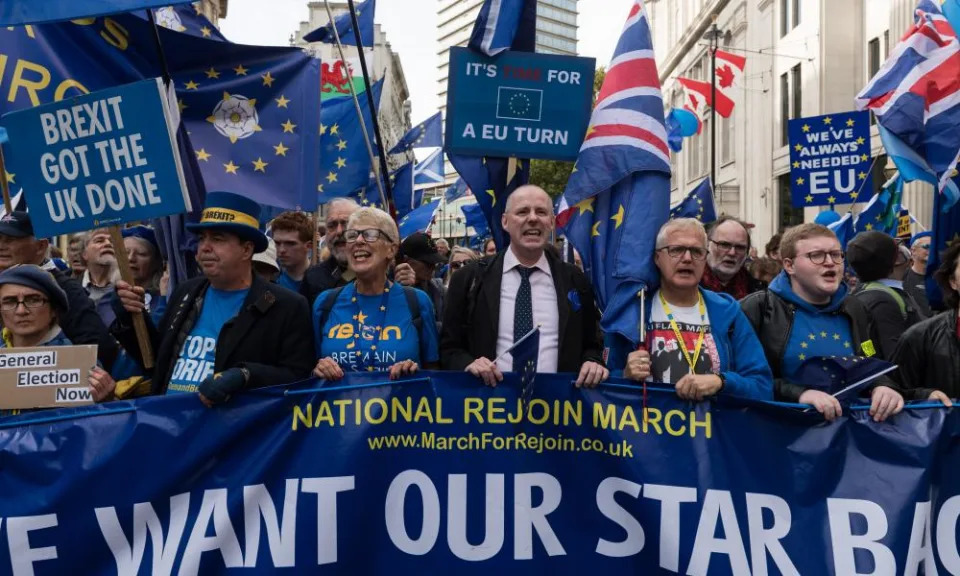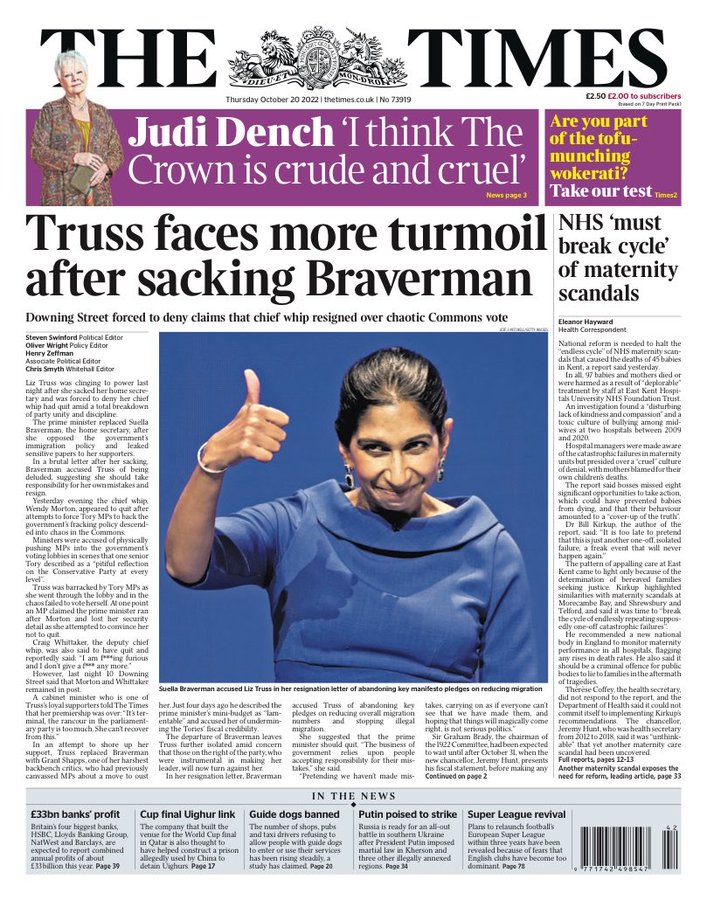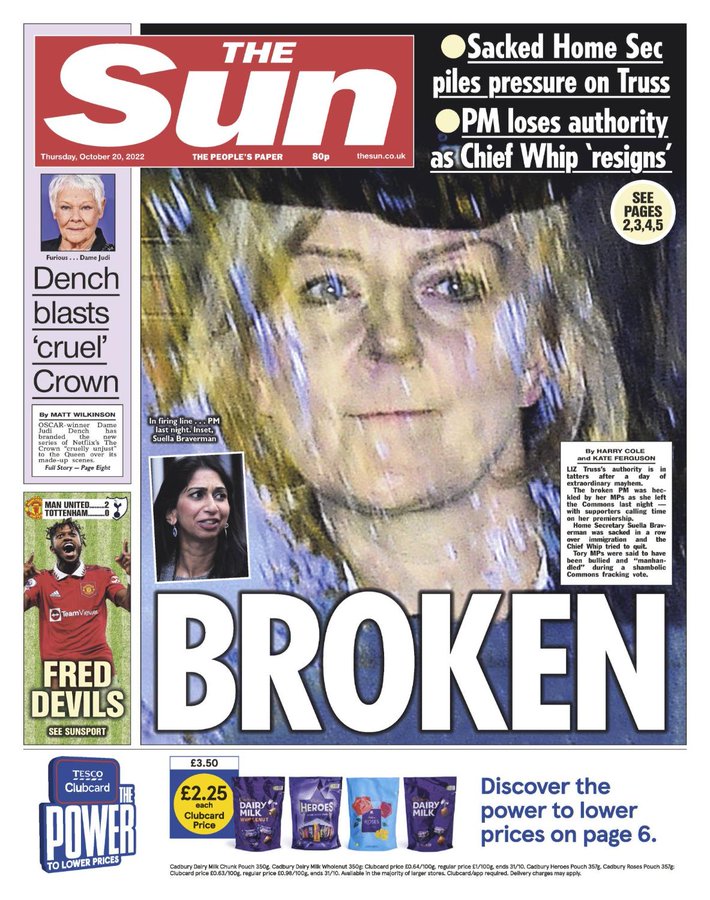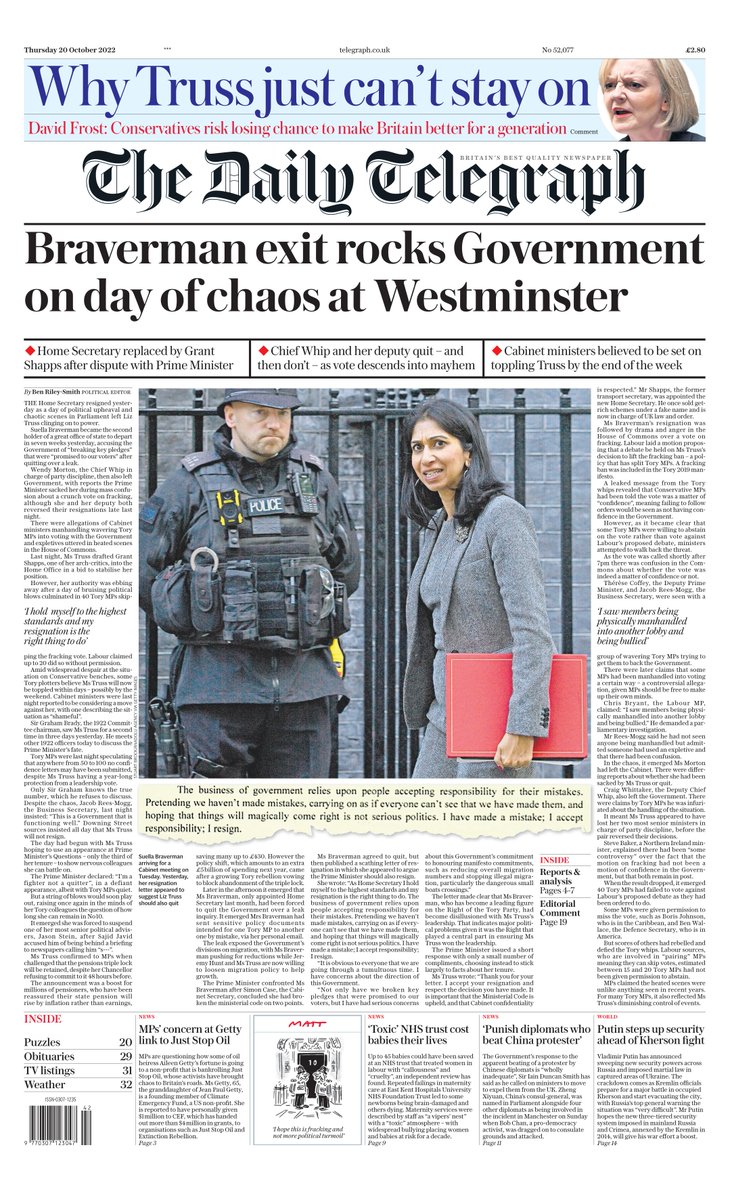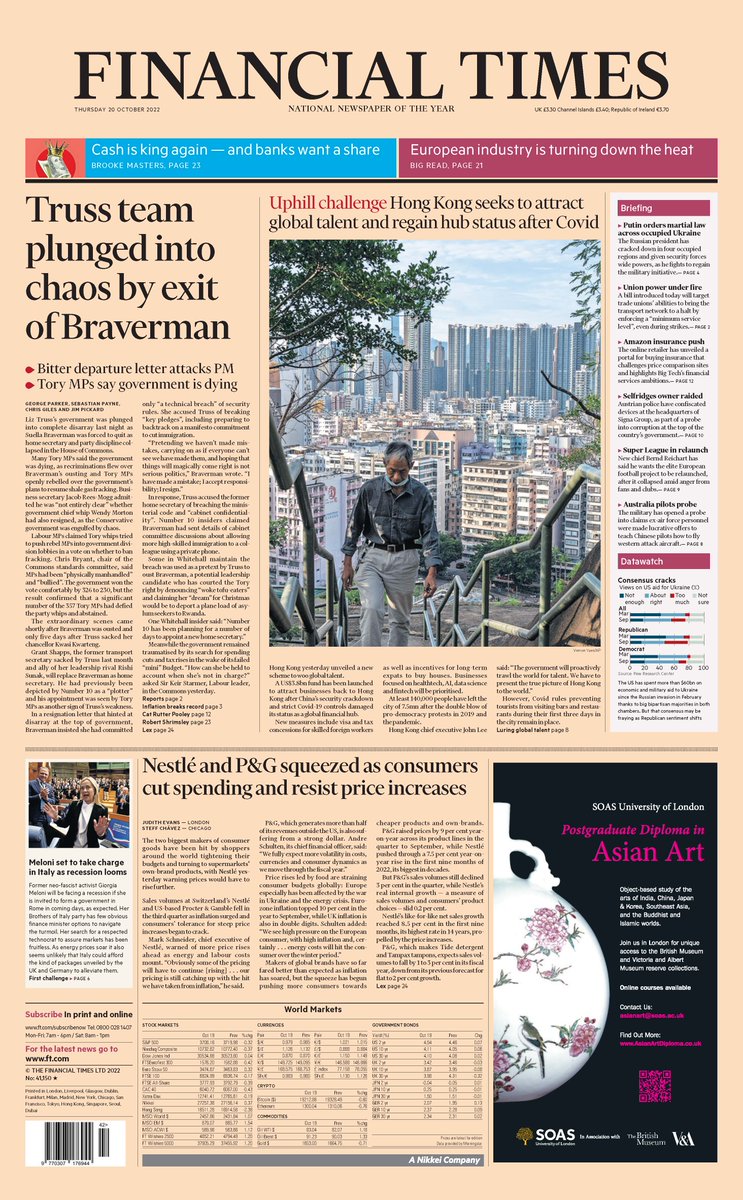The UK economy is clearly struggling. Growth has stalled, interest rates are going up and the Treasury is softening up the public for a new dose of austerity measures.
Larry Elliott The Guardian
The UK economy is clearly struggling. Growth has stalled, interest rates are going up and the Treasury is softening up the public for a new dose of austerity measures.
For some, the explanation for these horrors is simple: Britain is paying the price for its decision to leave the European Union. Forget the impact of the most severe pandemic in a century. Forget what Vladimir Putin’s invasion of Ukraine has done to energy prices. Brexit is the “gorilla in the room”.
Really? Or is this a classic case of confirmation bias, where someone starts with a preconceived view and then finds evidence to back up their argument? As in: I always said Brexit would be a disaster; the economy is in a bad way; Brexit is to blame and here’s the proof.
There is no dispute that the UK has some serious economic problems – including a chronic trade deficit and a poor record for investment – but they predate the Brexit vote in 2016. Britain has not run a surplus on trade in goods since the early 1980s, and wages adjusted for inflation have barely grown since the global financial crisis of the late 2000s. Had the economy been firing on all cylinders in 2016, it seems unlikely more than 17 million people would have voted to leave the EU.
Britain is not the only country facing labour shortages. The German government said earlier this year it was cutting red tape to make it easier to recruit workers from Turkey, and its big industrial sector trade union, IG Metall, has put in a claim for an 8% increase. France reported 300,000 unfilled vacancies in its hospitality, with a similar picture in Spain. According to the Office for National Statistics, at the time of the 2016 referendum there were 2,335,000 people born in other EU countries employed in the UK. At the latest count, this total stood at 2,389,000. The number is down slightly on the peak of 2,508,000 in early 2020 but there has been no mass exodus of EU workers.
Nor is the UK alone in facing cost of living pressures. The annual inflation rate for the 19-nation eurozone currently stands at 10.7%, higher than the UK’s 10.1%. US inflation peaked at just over 9% in the summer.
The European Central Bank is pushing up interest rates because it is worried that tight labour markets will lead to a wage-price spiral; so is the Federal Reserve in the US. The upward pressures on inflation are caused by the pandemic, the supply-chain bottlenecks that followed the pandemic, and by the failure of central banks to act quickly enough when problems first started to emerge. The whole of Europe is facing recession this winter, with Germany in particular paying a heavy price for its dependence on Russian gas.
All sorts of dire predictions were made for the UK economy at the time of the Brexit vote: house prices would tumble, unemployment would rise by 500,000 and the economy would sink into an immediate recession. None of it happened. The economy has trundled on.
Mark Carney, the former governor of the Bank of England, takes a dimmer view. He has argued that Britain’s economy was 90% the size of Germany’s before Brexit but only 70% the size of it today.
Prof Jonathan Portes, an economist at King’s College London who is no fan of Brexit, has described this comparison as “nonsense” because it involves measuring the value of economies at prevailing exchange rates. This is not the normal method economists use to assess the relative performance of countries, because comparisons are heavily influenced by movements in currencies. The pound, for example, is almost 10% higher than it was during a recent trough against the US dollar, but that doesn’t mean the UK economy has grown by almost 10% relative to the American economy in the past month.
A recent paper by Briefings for Britain, a Brexit-supporting body, offers a different perspective to Carney’s. It notes that the UK’s cumulative growth has been slightly higher than Germany’s since 2016; that trade with the EU – notwithstanding the extra red tape burdens facing small businesses – has recovered, and that Britain continues to attract more foreign direct investment than any other European country.
Of course, it might be argued that the UK would have had still more investment and even higher exports had a different decision been made on 23 June 2016. Over the years, the argument from the anti-Brexit camp has changed. Where once it was “Brexit will crash the economy” it now is “the economy would be performing better were it not for Brexit”.
The Briefings for Brexit paper (a comprehensive piece of work, worth reading whichever side of the argument you are on) says these counterfactual analyses are flawed. It concludes: “A careful reading of the evidence shows that while there is little evidence yet that Brexit is doing much to help the UK economy, neither is there evidence of much harm.”
That rings true. There has been no Armageddon. The economy is adapting, even if that process has been made more difficult by the pandemic, the war, and Liz Truss’ brief period as prime minister. If the effects of Brexit have tended to be exaggerated, then the impact of the pandemic and the lockdowns that accompanied it have tended to be downplayed, perhaps because the most fervent anti-Brexiters also wanted longer and more stringent lockdowns.
After six years, the argument for Brexit remains what it always was: an opportunity to look at an under-performing economy in a new light and to do things differently. Whether that opportunity will be seized or squandered remains to be seen, but there is no gorilla in the room, just a mouse with a loud squeak.
